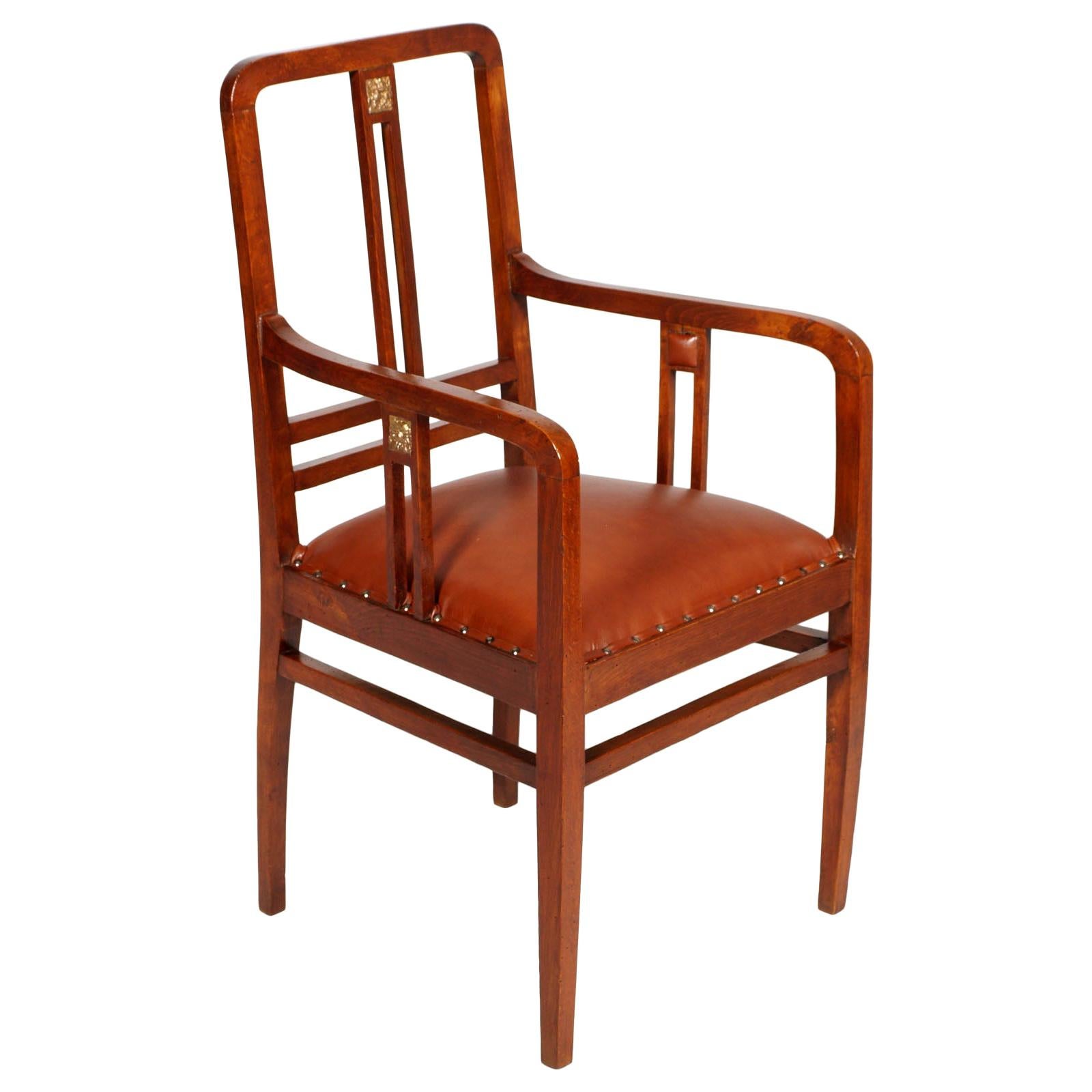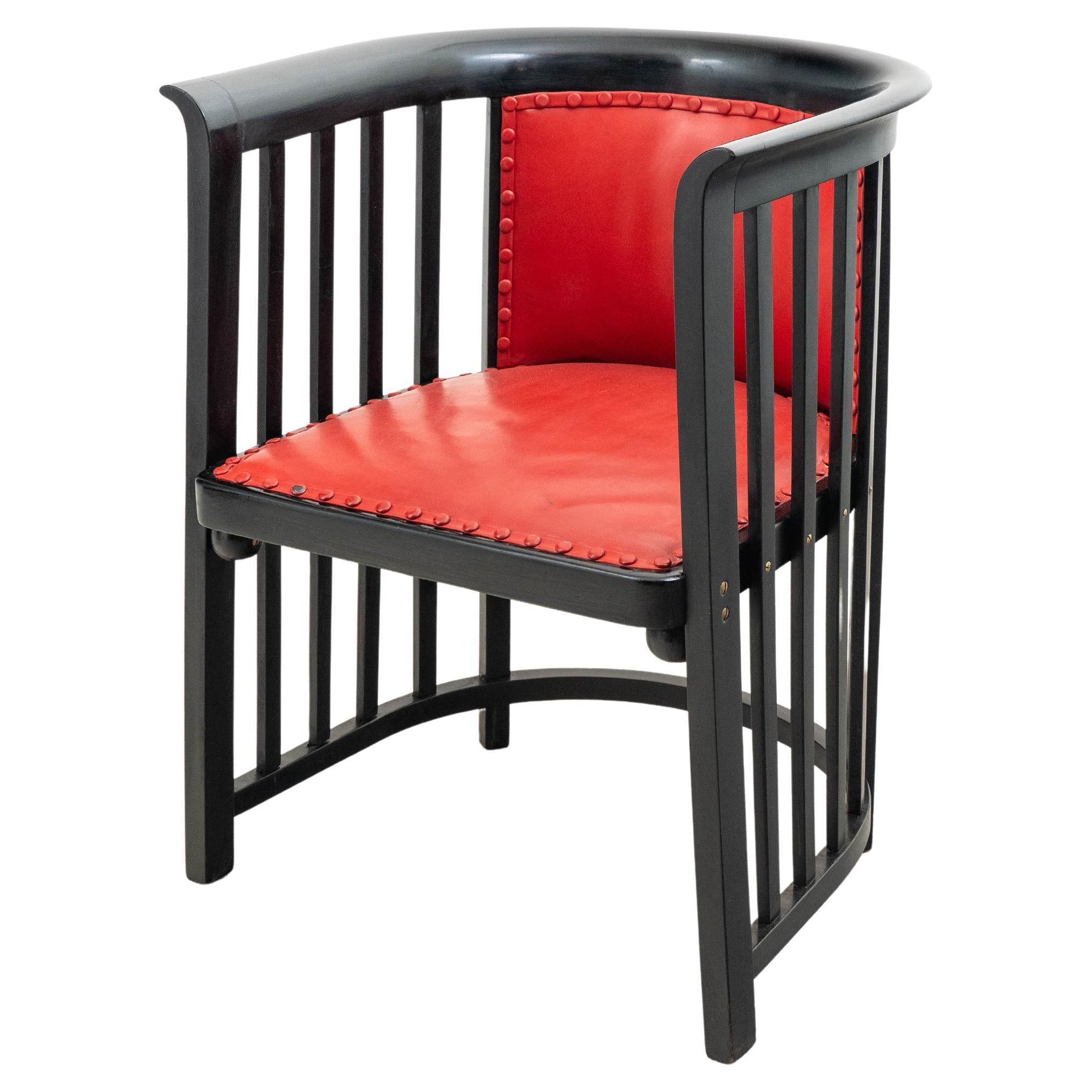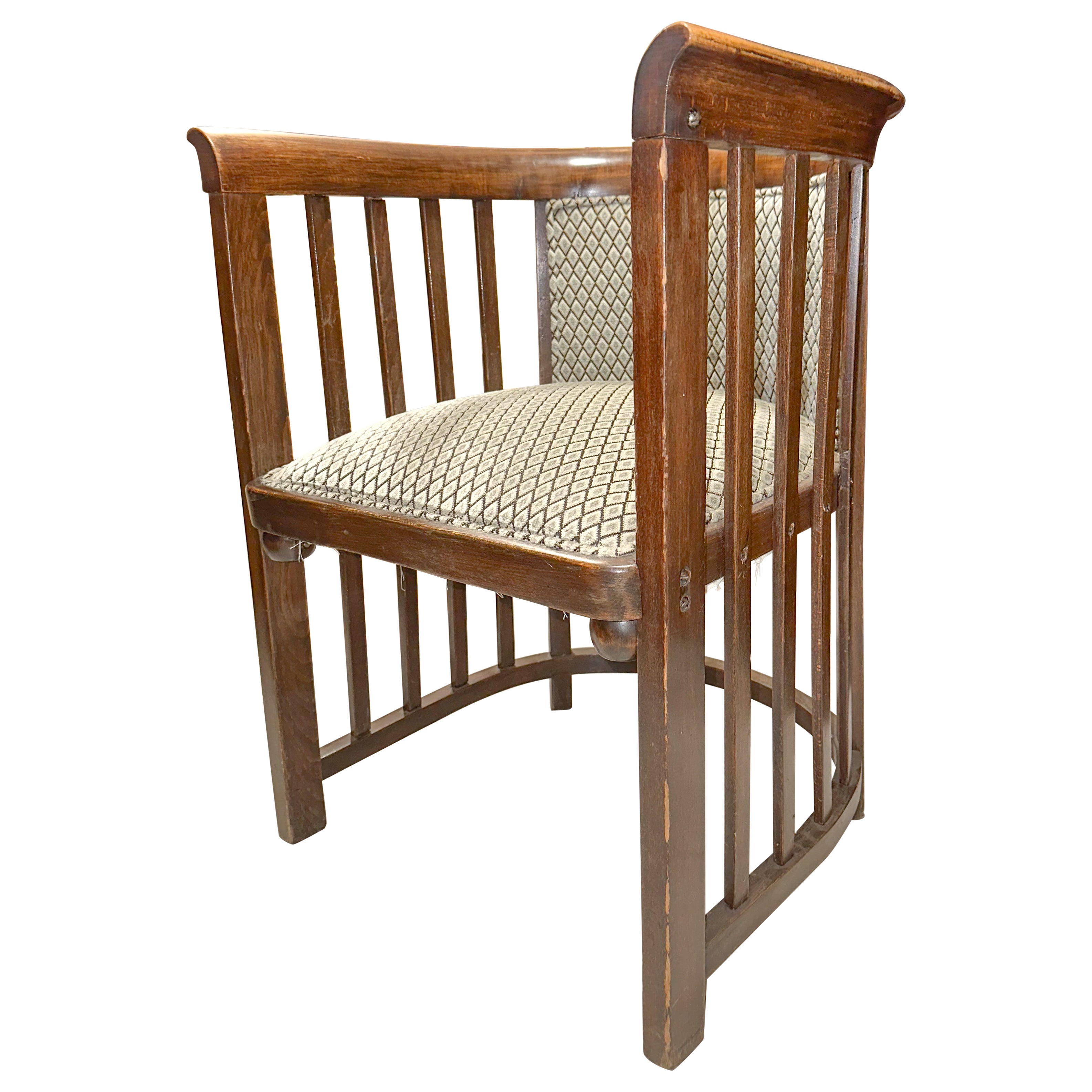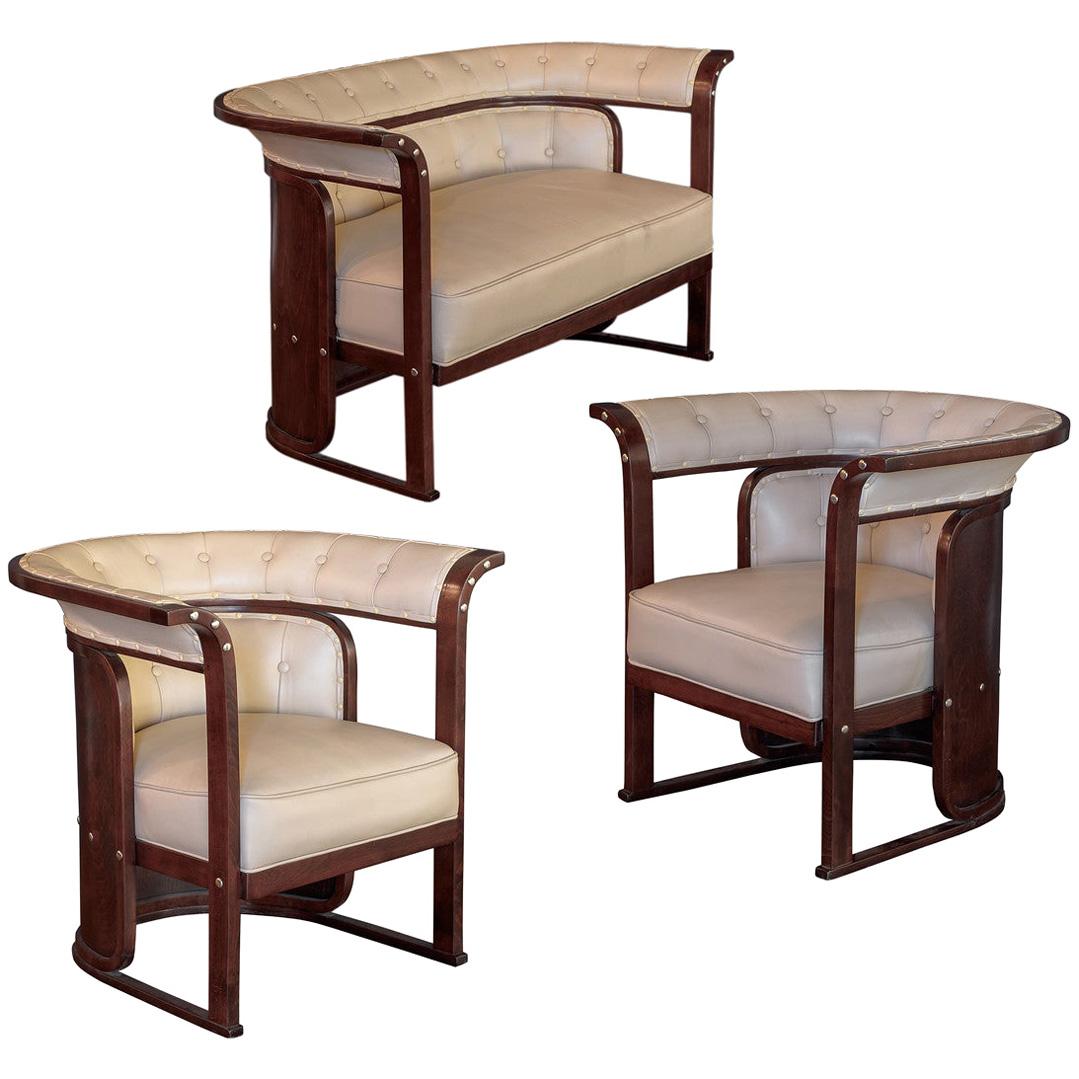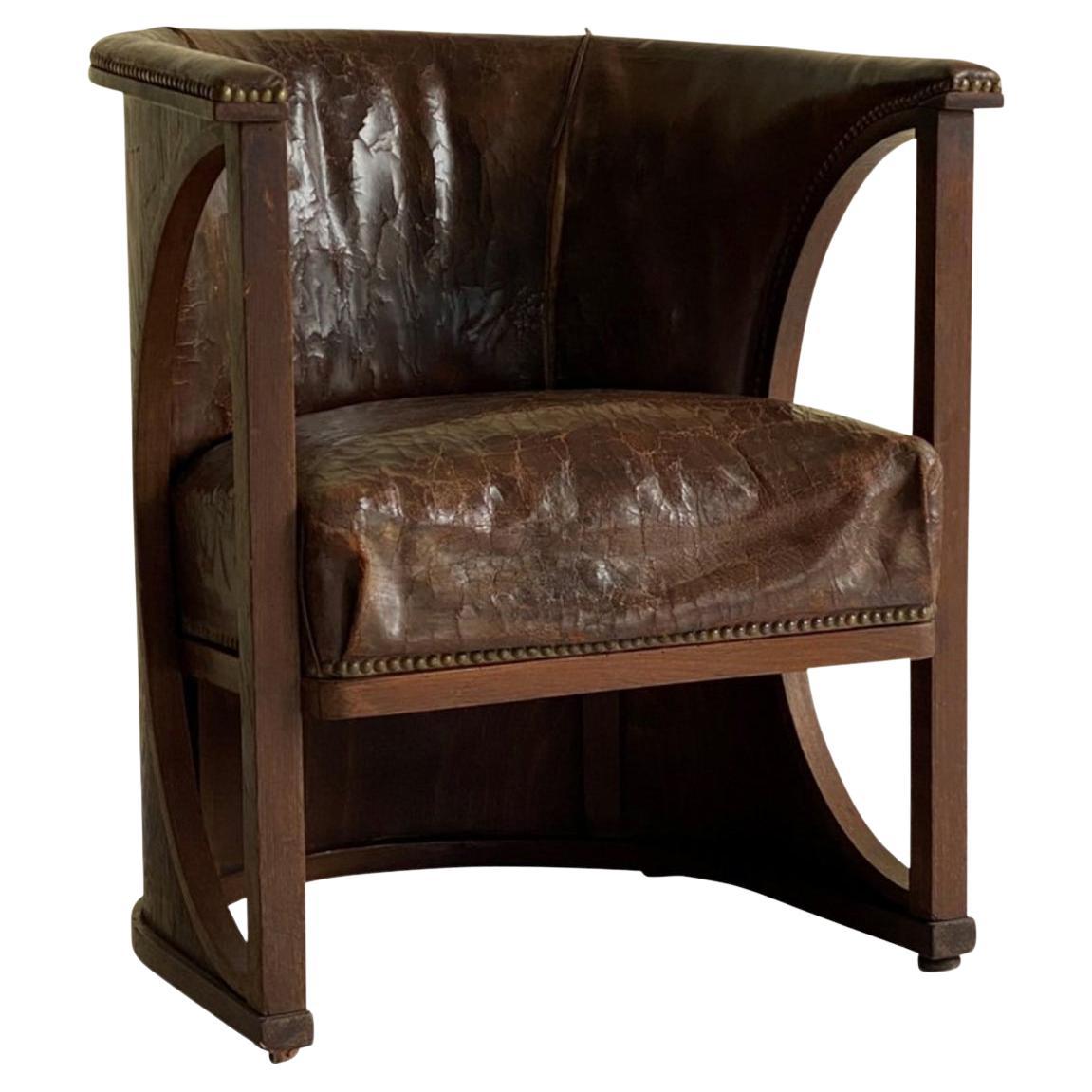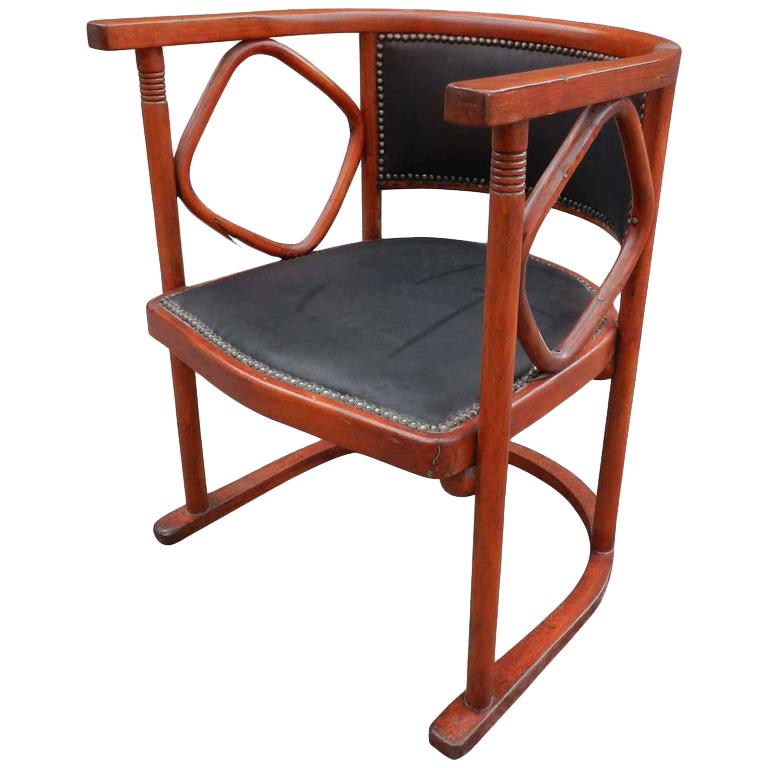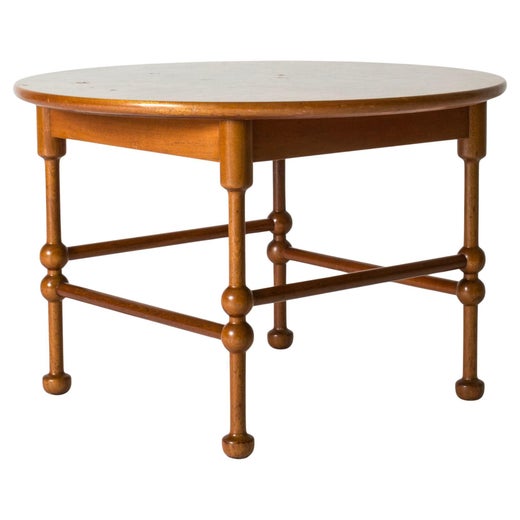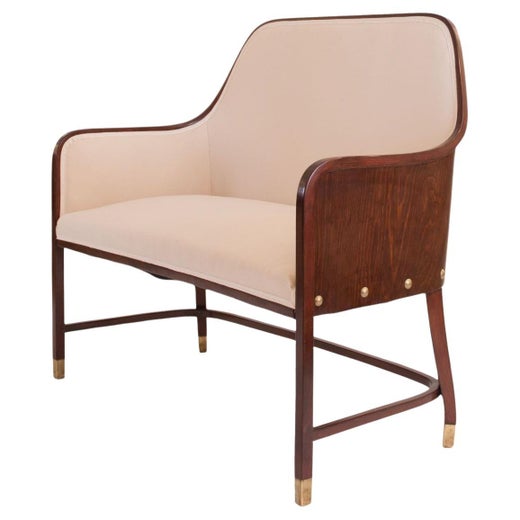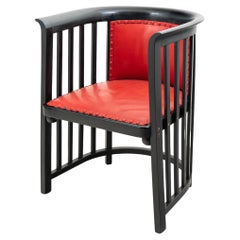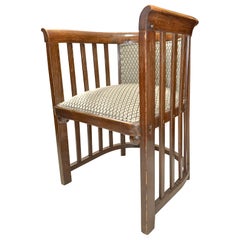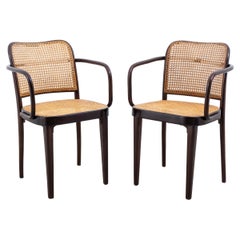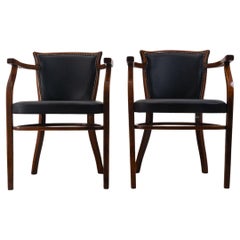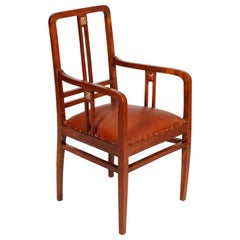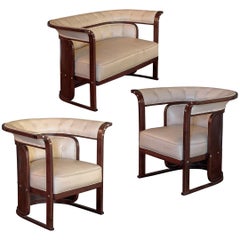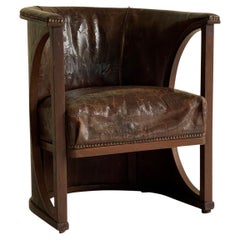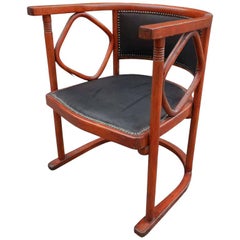J.&J. Kohn - Josef Hoffmann - Armchair - No. 675 - Beech, Leather - Buenos Aires
About the Item
- Creator:Jacob & Josef Kohn (Manufacturer),Josef Frank (Designer)
- Dimensions:Height: 29.93 in (76 cm)Width: 30.52 in (77.5 cm)Depth: 29.53 in (75 cm)
- Style:Art Nouveau (In the Style Of)
- Materials and Techniques:
- Place of Origin:
- Period:1900-1909
- Date of Manufacture:circa 1900
- Condition:Refinished. Reupholstered. Wear consistent with age and use.
- Seller Location:Budapest, HU
- Reference Number:1stDibs: LU10004245761282
Josef Frank
Austrian architect and furniture and fabric designer Josef Frank was a leading voice for a gentle, humane modernism. His advocacy of warm, comfortable, eclectically styled environments was highly influential in his adopted country of Sweden, and it’s now widely regarded as a harbinger of the backlash against doctrinaire modernism and the embrace of the homespun that occurred in the late 1960s.
The son of a successful Viennese textile manufacturer, Frank studied architecture at Vienna University of Technology, graduating in 1910. From the first years of his practice, he marched counter to the orderly, symmetrical architectural layouts and decors prescribed by contemporaries such as Adolf Loos.
Frank drafted rooms of varying shapes and called for flexible interior-design arrangements. His furniture pieces are light and easy to move — and his chairs are always made of wood, most often with lushly curved steam-bent arms and slatted backs. Frank openly loathed the tubular steel furnishings and “machine for living” aesthetic promoted by Le Corbusier and Ludwig Mies van der Rohe and other Bauhaus principals. “The home must not be a mere efficient machine,” Frank once said. “It must offer comfort, rest and coziness…. There are no puritan principles in good interior decoration.”
Frank — who was Jewish — sensed the dire implications of the rise of Nazism in Germany and Austria, and in 1933 he moved to Stockholm with his Swedish wife, Anna. He became the design chief for the furnishings maker Svenskt Tenn and found a perfect match culturally for his brand of simple, relaxed and bright creations. Like many modernists — notably Charles and Ray Eames and Alexander Girard — Frank had a deep love of folk art, which influenced his designs for a wide array of colorful, richly patterned upholstery fabrics, many based on the classic “Tree of Life” motif.
In all his designs, Frank took inspiration from a broad variety of sources. In his furniture, one can discern traces of Asian patterns, Rococo, Italian Renaissance, Scandinavian handicrafts and even Chippendale pieces. As such, the work of Frank — the friendly modernist — is at home in any type of décor.
Find vintage Josef Frank pillows, armchairs, floor lamps and other furniture on 1stDibs.
Jacob & Josef Kohn
While the first name that comes to mind when thinking of bentwood furniture might be Thonet (maker of the iconic Thonet No. 14 chair or “bistro chair”), Michael Thonet and his subsequent studio, the Gebrüder Thonet (Thonet Brothers), had a strong competitor in 19th-century Vienna: Jacob & Josef Kohn (also referred to as J. & J. Kohn).
Founded in 1849 by a father and son with the motto “Be one step ahead,” Jacob & Josef Kohn created modern furniture for indoors and out from Austrian beech. At the turn of the 20th century, after establishing itself with mastery of everything from chairs to coatracks and even doll furniture, J. & J. Kohn began working closely with the Wiener Werkstätte, the artisan cooperative cofounded by Austrian architect and designer Josef Hoffmann (Gustav Klimt and Koloman Moser were also members). Through this partnership, J. & J. Kohn produced an array of furniture in bentwood, cane and upholstery, which it sold through showrooms across Europe and North America. Its designs throughout the first decade of the 20th century reflect the Art Nouveau movement that was quickly gaining traction across Europe.
Price wars and mergers ensued during the First World War. Changes in the organizational structure of Thonet included a merger with Viennese company Mundus in the early 20th century, which followed Mundus’s becoming a majority stakeholder in J. & J. Kohn — these mergers yielded the formation of Mundus-Kohn and later, in 1922–23, Thonet-Mundus. The new conglomerate went on to produce examples of its bentwood furniture in keeping with the modern style of the Vienna Secession. While Thonet rebuilt, rebranded and expanded in the United States and elsewhere after World War II, J. & J. Kohn never produced furniture under that name again.
On 1stDibs, find a variety of antique J. & J. Kohn furniture including bentwood wingback chairs designed by Josef Hoffmann and other seating, side tables, beech nesting tables and more.
- ShippingRetrieving quote...Shipping from: Budapest, Hungary
- Return Policy
More From This Seller
View AllAntique Early 1900s Austrian Art Nouveau Armchairs
Leather, Beech
Antique Early 1900s Austrian Art Nouveau Armchairs
Fabric, Beech
Antique Early 1900s Austrian Art Nouveau Armchairs
Reed, Beech
Antique Early 1900s Austrian Jugendstil Armchairs
Leather, Beech
Antique Early 1900s Austrian Art Nouveau Dining Room Chairs
Leather, Beech
Antique Early 1900s Austrian Jugendstil Armchairs
Upholstery, Beech
You May Also Like
Early 20th Century Austrian Art Nouveau Armchairs
Bronze
Early 20th Century Austrian Vienna Secession Club Chairs
Leather, Beech
Early 20th Century Austrian Jugendstil Lounge Chairs
Leather, Beech
Antique Late 19th Century Austrian Art Nouveau Armchairs
Beech
Vintage 1910s German Jugendstil Armchairs
Beech, Bentwood
Early 20th Century Austrian Chairs
Leather, Wood
